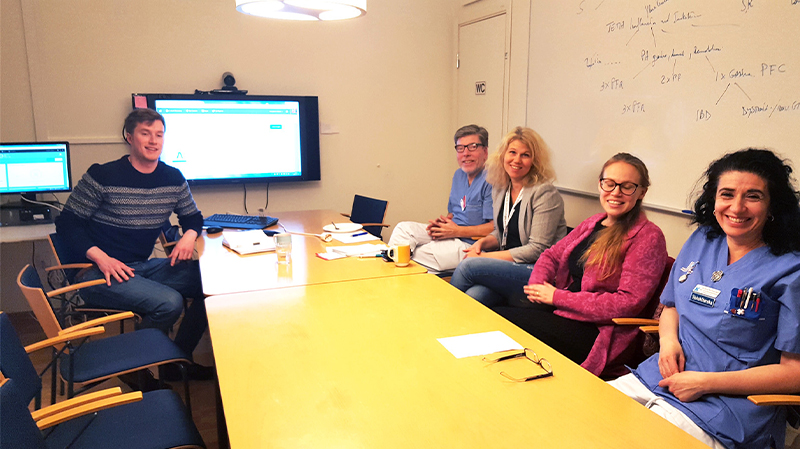How we’re supporting Sweden’s National Lynch Syndrome database project
I had the privilege of spending some time recently in the beautiful Swedish city of Stockholm providing training to our Atmohealth partners at the Karolinska Institute. These are my brief reflections on the visit.
My colleague Matt and I spent the day with clinicians involved in the treatment of Lynch syndrome patients. There are approximately 500 individuals with this condition in Sweden and Karolinska’s dataset currently contains data on about half of these. Every month, they add around another 20 individuals from previously diagnosed cases, along with five new cases.
The project’s goal
The primary objective is to identify quality control parameters related to patient interventions associated with Lynch syndrome. The area of interest is the quality of cancer screening activities undertaken with Lynch syndrome patients. Individuals identified with this syndrome have an 80% chance of developing colon cancer in their lifetime, so colonoscopies are conducted as part of the screening.
Transitioning to digital
As part of the project, clinicians will be entering data directly into our tool, Care Partner, which we designed for data capturing and patient record management. The team were excited about this as Care Partner will be used as the platform to digitise their paper records. During the training, it was also great to see that Care Partner could offer additional functionality that will add further value to their research and operations.
Insights on demand
Once the data comes across to our analytics platform, Atmolytics, the clinicians will be focusing on improving the operational management of the team’s activities. Reports will focus on screenings or observations that are overdue and the monitoring of conditions. For the first time, the team will have a holistic overview of patients too, where trends and patterns will be evident.
Jan, one of the clinicians, explained that he has previously gained insights via pre-configured dashboards. What will be new for him with Atmolytics is the ability to mine the data on-demand in any facet he and his colleagues choose. So it’s a real move away from accessing fixed, pre-programmed sets of metrics or analyses.
The benefit will be that Jan and his team will be able to answer many of their questions by instantly exploring the data themselves. For example, ‘Why is that measure/reading lower than the average this month?’.

Next steps – evaluation
I’m already looking forward to returning in March when the team will be providing a full evaluation of using Atmolytics with their newly digitised dataset. We also hope to receive some useful feedback on Care Partner in this specific clinical setting and how the two work together for the benefit of population health.
